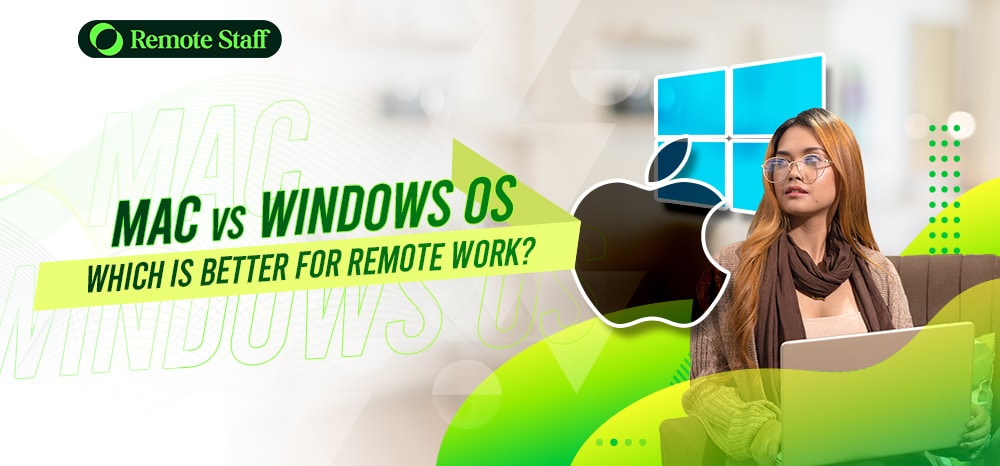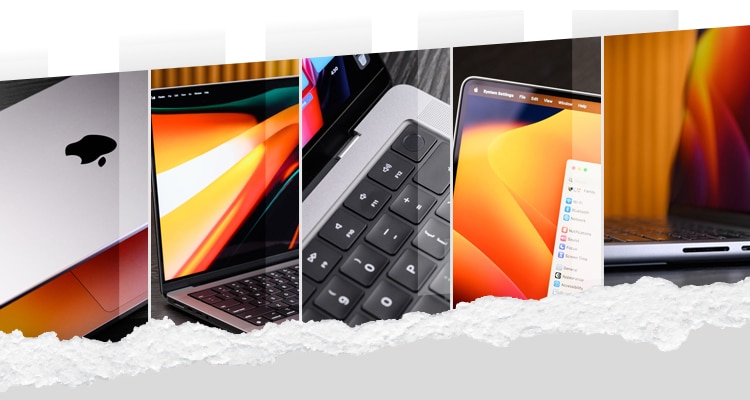Will you be working remotely soon? You’ll need a computer first.
Which one should you choose: Mac or Windows?
Picking the right operating system matters as much as choosing the best computer specs for remote work.
Both Windows and Mac have plenty of features to support remote work. These are the pros and cons of both operating systems.
Mac Operating System
This refers to Apple’s line of computers that runs the Mac OS operating system. Here are the advantages and disadvantages of using Mac OS for remote work.
User Interface
MacOS is known for its intuitive and user-friendly interface, making tasks simpler and more accessible to users.
Also, Mac’s sleek design is visually pleasing, which can make the overall working experience more pleasant.
Seamless Integration with Other Apple Devices
Features such as AirDrop make file transfers between other Apple devices fast and easy. Also, Apple devices under the same Apple ID can share wifi passwords and continuity features.
Nifty functions include using your iPad as an extended second screen and connecting to your iPhone as an external webcam.
You can even copy the text on your iPhone and seamlessly paste it into your laptop afterward.
Security
Macs are relatively more secure because of their closed ecosystem. This opens them up to fewer vulnerabilities compared to Windows.
In addition, MacOS is more secure by default with features like Gatekeeper, System Integrity Protection, and advanced malware detection systems.
High Costs
Macs are generally more expensive than their Windows-based counterparts. This might make them less appealing to those seeking more budget-friendly options
Software Compatibility Issues
Some software outside the Mac ecosystem might have limited compatibility with a Mac OS.
Thus, you might need to purchase Mac versions of industry-specific or niche programs.
Lesser Customization
Due to its closed ecosystem, Macs offer less customization compared to Windows. It might be a drawback if you’re the type who wants more control over your system settings.
Windows
Windows is an operating system designed by Microsoft and is used in a majority of computers worldwide. Here are the advantages and disadvantages of using it for remote work:
Compatibility
Since it’s widely used around the world, Windows enjoys extensive compatibility with nearly all software available for computers.
This is a huge advantage for users who want to use a wide range of programs and applications. It can also run legacy software if your client hasn’t updated yet.
You can even use your device for a smooth gaming experience after work.
Customization
Windows is highly customizable, allowing users to modify their system according to their preferences.
This isn’t limited to aesthetic customization either.
You can make changes to how Windows works, including adjusting security settings, customizing the Start Menu, and even adding new features or applications.
Broad Selection of Hardware for All Budgets
For Windows users, hardware selection is also more flexible, especially if you’re building a PC.
You can use Windows on both high-end and budget hardware without any issues.
Security Concerns
Windows has had more security issues compared to Mac OS, so it requires extra security precautions.
You might need to install an extra antivirus software just in case.
Less User-friendly Interface
While it’s improved significantly over the years, some users find Windows’ interface less intuitive or visually appealing compared to Mac OS.
It can be cluttered and confusing at first, which can make navigation difficult and time-consuming.
With the pros and cons above, you can better assess which operating system is more suitable for your remote working needs.
However, if you’re still looking for online jobs, you can sign up with Remote Staff for the best remote working opportunities for Filipinos.
With a functional laptop, stable internet connection, and the right skills, we’ll help you find ideal clients for your remote working career.
Register today!



